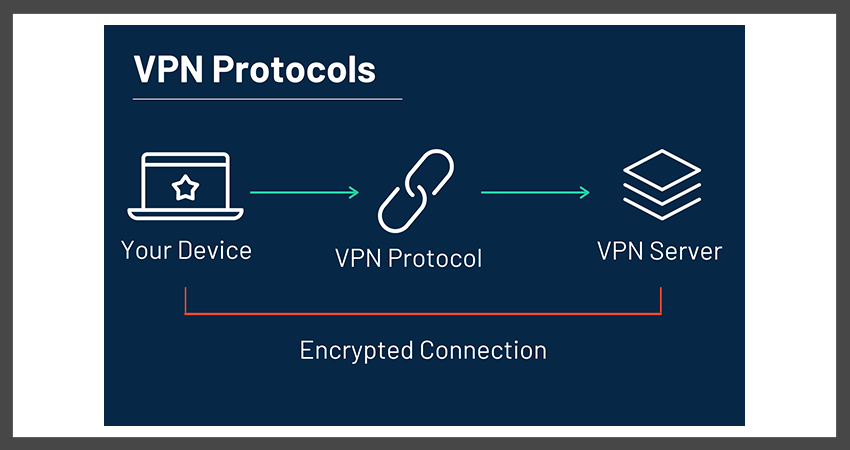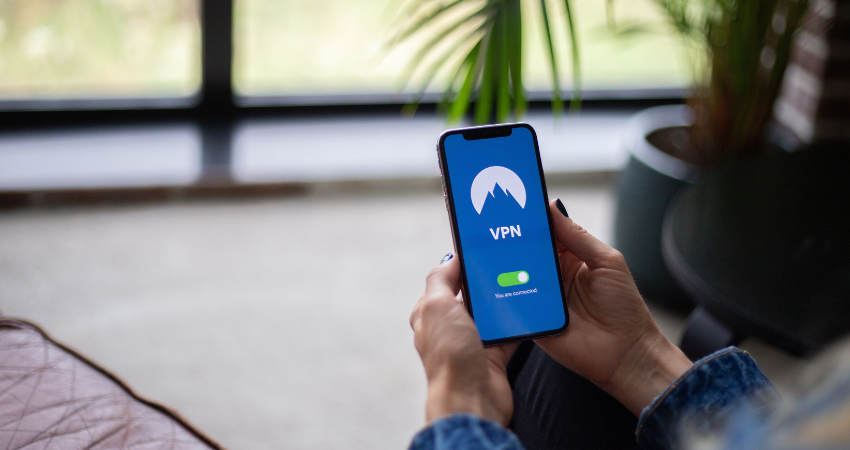In the labyrinth of the digital world, VPN protocols act as the guiding Ariadne’s thread. They establish the path and rules for data transmission over a private network, ensuring privacy, security, and speed. But, with a myriad of protocols to choose from, the question arises: Which VPN protocol is best?
In this informative guide, we’ll unravel the intricacies of various VPN protocols. We’ll delve into their features, strengths, and weaknesses, and guide you towards the best choice for your unique needs. We’ll also explore proprietary protocols and provide a comprehensive comparison of the common ones.
Without further ado, let’s embark on this enlightening journey!
Understanding VPN Protocols
Think of the transmission process in a VPN as shipping a precious artifact. The artifact is your data, and the packaging material is the VPN protocol. Some packages (protocols) offer maximum cushioning (encryption), ensuring the utmost security for the artifact but at the cost of speed. Others prioritize speedy delivery, sacrificing a degree of security.

The key to choosing the best VPN protocol lies in understanding your specific requirements – is it speed, security, or a balance of both?
Exploring Common VPN Protocols

Let’s take a closer look at the common VPN protocols:
IKEv2
IKEv2, short for Internet Key Exchange version 2, is a popular choice for VPN mobile applications. Its prime attraction lies in its ability to automatically reconnect if the VPN server connection is interrupted. This feature enables smooth switching between wifi and mobile data.
OpenVPN
OpenVPN enjoys immense popularity in the VPN world. It employs TLS with SSL/TLS for private key exchange. OpenVPN offers two versions of network protocols: User Datagram Protocol (UDP), which prioritizes speed and Transmission Control Protocol (TCP), which emphasizes stable connections.
L2TP/IPSec
The Layer 2 Tunneling Protocol (L2TP) partners with Internet Protocol Security (IPSec) to offer a secure VPN protocol. L2TP forms the tunnel and handles authentication, while IPSec provides the encryption.
WireGuard
WireGuard is the new kid on the block. It offers impressive connection speeds without compromising security. WireGuard uses public cryptography packages for data authentication and encryption and provides tools for developers to add extensions and scripts.
SSTP
The Secure Socket Tunneling Protocol (SSTP) is a development of PPTP and L2TP protocols. It carries PPTP or L2TP traffic through the SSL 3.0 channel, ensuring data integrity checks and encryption measures.
PPTP
The Point to Point Tunneling Protocol (PPTP) is one of the earliest tunneling protocols. Despite being outdated, it still finds usage in some circles.
Proprietary VPN Protocols: A Closer Look

Many VPN providers have developed their proprietary protocols. For example, NordVPN’s NordLynx or Hotspot Shield’s Catapult Hydra. These protocols often promise better speeds, enhanced security, and superior ability to bypass firewalls.
VPN Protocol Comparison
Here’s a concise comparison of the different VPN protocols:
| Compatibility | Encryption | Security | Efficiency |
|---|---|---|---|
| IKEv2 | AES, 3DES | Secure | Fast |
| OpenVPN | AES, DES | Very secure | Fast (UDP), Slow (TCP) |
| L2TP/IPSec | AES, 3DES | Secure | Varies |
| WireGuard | ChaCha20 | Very secure | Very fast |
| SSTP | AES | Secure | Varies |
| PPTP | MPPE with RSA RC4 | Very insecure | Fast |
Choosing the Best VPN Protocol for Different Use Cases

Streaming
Streaming requires speed over privacy. For the best performance, consider using NordLynx, which is built around WireGuard. IKEv2, L2TP/IPSec, or even OpenVPN in UDP mode are also good choices.
Downloads
Downloading data from P2P networks demands a balance of speed and privacy. Secure and fast protocols like WireGuard or OpenVPN in UDP mode are recommended.
Gaming
For gaming, a low ping is crucial. Select a fast protocol like IKEv2 or WireGuard and connect to a nearby location to minimize latency.
Privacy
If privacy and security are paramount, only choose the most secure protocols: WireGuard and OpenVPN. Look for a VPN that offers a “stealth mode” to bypass firewalls.
FAQ
What VPN protocol should I use?
The choice of VPN protocol should be guided by your specific use case and the protocols available with your VPN provider. OpenVPN, IKEv2, and WireGuard are among the most reliable options.
What Is the most secure VPN protocol?
While WireGuard is advanced, OpenVPN and IKEv2 remain the gold standards for security.
Which VPN protocol is the fastest?
WireGuard stands out as the fastest VPN protocol, offering high speeds even on weaker devices.
How much will a VPN reduce my internet speed?
VPN usage can lead to a speed reduction of around 50%, although this can vary based on several factors.
Which VPN protocol to choose for Android or iPhone?
IKEv2 is a great choice for mobile devices, given its ability to switch seamlessly between wifi and cellular data.
With this information at your fingertips, you’re well equipped to make an informed decision about the best VPN protocol for your needs. Happy browsing!





